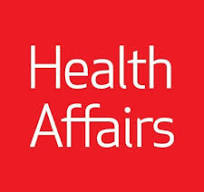
Licensure Policies May Help States Ensure Access To Opioid Use Disorder Medication In Specialty Addiction Treatment
Alene Kennedy-Hendricks, Alexander McCourt, Matthew Eisenberg, Minna Song, Joshua M. Sharfstein
Despite the devastating toll of the overdose crisis in the United States, many addiction treatment programs do not offer medications for opioid use disorder (MOUD). Several states have incorporated MOUD requirements into their standards for treatment program licensure. This study examined policy officials’ and treatment providers’ perspectives on the implementation of these policies. During 2020–22, we conducted thirty-one semistructured interviews with forty policy officials and treatment providers in nine states identified through a legal analysis. Of these states, three states required treatment organizations to offer MOUD, and two prohibited organizations from denying admission to people receiving MOUD. Qualitative findings revealed that licensure policies were part of a broader effort to transition the specialty treatment system to a model of care more consistent with medical evidence; states perceived tension between raising quality standards and maintaining adequate treatment capacity; aligning other state policies with MOUD access goals facilitated implementation of the licensure requirement; and measuring compliance was challenging. Licensure may offer states an opportunity to take a more active role in ensuring access to effective treatment.
Kennedy-Hendricks A, Song M, McCourt AD, Sharfstein JM, Eisenberg MD, Saloner B. Licensure Policies May Help States Ensure Access To Opioid Use Disorder Medication In Specialty Addiction Treatment. Health Aff (Millwood). 2024 May;43(5):732-739. doi: 10.1377/hlthaff.2023.01306. PMID: 38709972.
